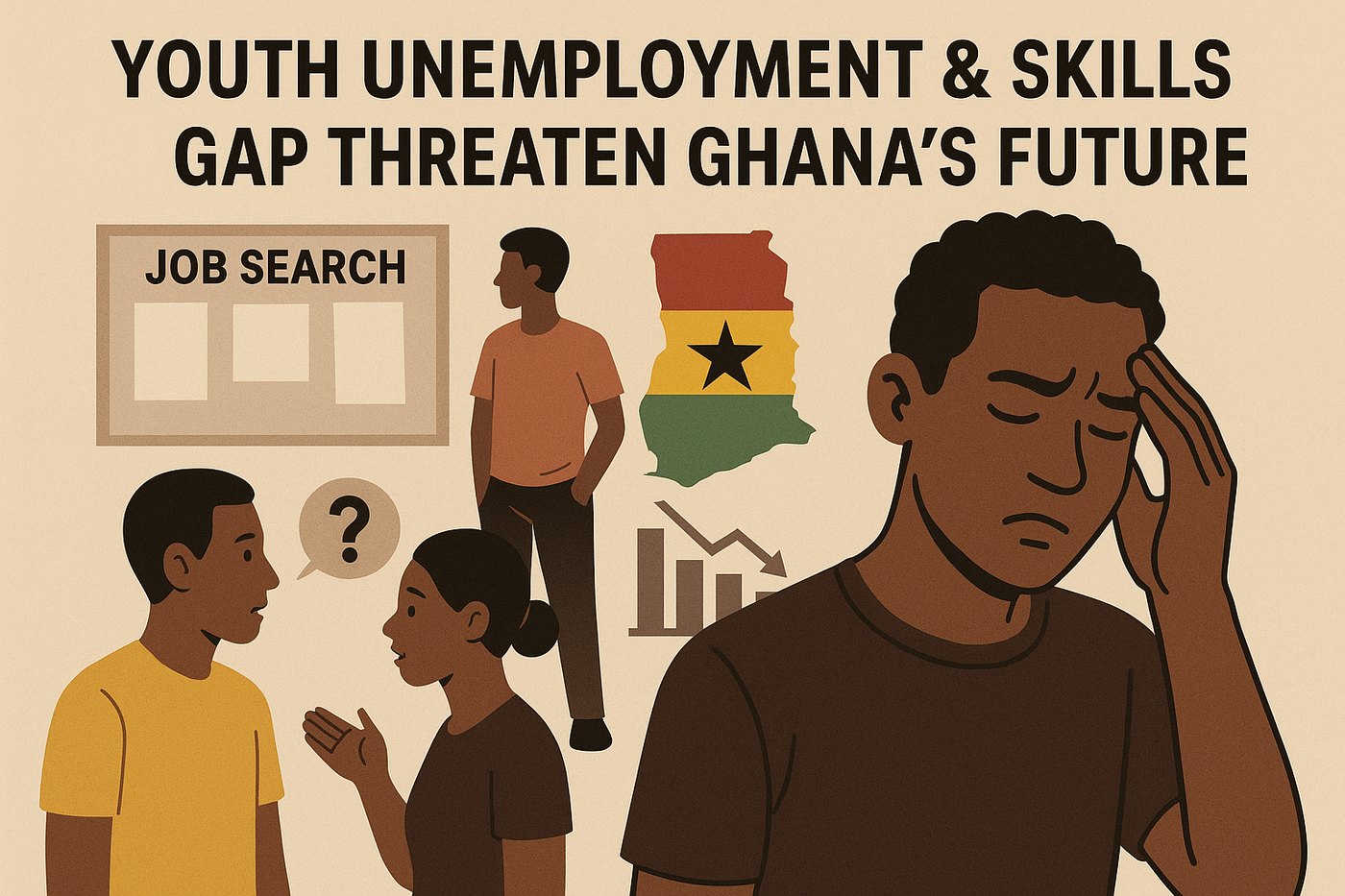
Youth Unemployment & Skills Gap Threaten Ghana’s Future
Ghana’s rising youth population is one of its greatest assets—yet many young people remain unemployed or underemployed. Despite graduating with certificates in hand, a large number of Ghanaian youth feel disillusioned, disconnected, and emotionally drained. The issue is no longer just economic; it is profoundly mental and psychological.
Dr. David Rex Orgen, a leading voice in mental health advocacy across Africa, sees youth unemployment not just as a statistic—but as a silent mental health crisis.

The Skills Gap and the Mental Trap
At the heart of the issue lies a mismatch between academic qualifications and real-world skills. While the economy evolves, many young people feel unprepared, unsupported, and unworthy. This gap doesn’t just deny them jobs—it denies them identity, confidence, and hope.
“The frustration of not being useful despite being educated creates a cycle of low self-worth,” Dr. Orgen explains. “And when this feeling is shared by millions, it becomes a national psychological emergency.”
Youth across Ghana are silently battling:
Depression and anxiety from persistent rejection
Imposter syndrome, even after formal education
A sense of abandonment, having done “everything right” but seeing no results
A fixed mindset, that success is limited or only reserved for the privileged
The Mindset Shift Ghana Needs
Beyond job creation, Dr. Orgen advocates for a transformation of the youth mindset—from passive waiting to proactive skill-building. He believes Ghana’s future depends on emotionally resilient, mentally strong youth who are equipped not only with technical skills but also emotional intelligence, adaptability, and entrepreneurial courage.
“Mindset is the soil in which every dream either grows or dies,” he says.
Mental Health and Employability
Unemployment without emotional support can lead to isolation, crime, substance abuse, and suicidal thoughts. The longer the youth feel unseen, the deeper the wounds to national morale.
A Call to Action
To the government: Integrate mental health services into job centers and youth development policies.
To educators: Shift focus from rote learning to mindset development, innovation, and emotional growth.
To young people: Don’t wait for permission—learn, create, collaborate, and build networks.
To communities: Celebrate effort and growth, not just final success. Everyone’s journey is different.
Final Word
Unemployment is painful, but hopelessness is paralyzing. The future of Ghana lies in healing the minds of its youth as much as in fixing its systems.
As Dr. Orgen affirms: “When the youth believe in themselves again, Ghana will rise—not just economically, but emotionally.”
Recent Posts
When Cravings Speak Louder Than Words
Degrees Without Doors
Becoming the First Was Never About Recognition It Was About Assignment
Tags
+1 (614) 753-3925
info@inspiremindglobal.com




